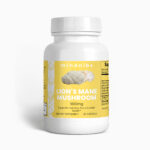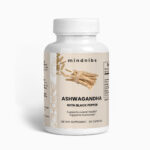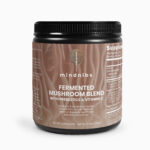
“Bone Health: Can Supplements Prevent Osteoporosis?”
Osteoporosis affects millions of people worldwide and can lead to painful fractures, loss of mobility, and even premature death. As we age, our bones become weaker and more brittle, making us more susceptible to this debilitating disease. While there are several preventative measures we can take to maintain and improve our bone health, including exercise and a healthy diet, many people are turning to supplements as a means of prevention. But can supplements really prevent osteoporosis? In this article, we will explore the research and evidence behind common bone health supplements and discuss their effectiveness in preventing this devastating disease.
1. Introduction: Understanding the Importance of Bone Health and Osteoporosis
Bone health is a crucial aspect of general health and wellbeing. Bones serve as the framework upon which muscles and other tissues attach, making them responsible for supporting our body weight and allowing us to move. Therefore, it is essential to maintain healthy bones to prevent issues such as fractures, breakage or dislocations. Keeping healthy bones throughout life can prevent the development of osteoporosis, which is a common bone disease among older adults.
Osteoporosis is a medical condition characterized by bones becoming brittle and fragile, leading to an increased risk of fractures. This disease is prevalent globally, and it affects over 200 million people every year. Women are at a higher risk of developing osteoporosis than men, as roughly one in three women and one in five men aged 50 and over are expected to experience a bone fracture caused by osteoporosis. Besides, other risk factors may increase the likelihood of an individual developing osteoporosis, such as lack of exercise and unhealthy eating habits.
Fortunately, some actions can be taken to maintain healthy bones and prevent the onset of osteoporosis. A healthy lifestyle that includes a balanced diet, regular physical activity, and adequate vitamin D and calcium intake can help maintain bone health. Regular exercise, such as weight-bearing activities or strength training, can help build and strengthen bones. It is also essential to avoid smoking and excessive alcohol consumption, as these can speed up bone loss and lead to osteoporosis. By taking care of our bones, we can prevent osteoporosis and its devastating consequences, such as fractured bones and reduced mobility.
2. The Science Behind Osteoporosis: What Causes it and Who is at Risk?
Osteoporosis is a condition that affects bone strength, making bones brittle and prone to fractures. It’s caused by the loss of bone density, which can occur due to a variety of factors. Some of the most common causes of osteoporosis include age, gender, lifestyle factors, and certain medical conditions.
As we age, our bones naturally become less dense and weaker. Women are also at a higher risk of osteoporosis due to the hormonal changes that occur during menopause. Lifestyle factors such as low physical activity levels, smoking, and excessive alcohol consumption can also increase the risk of osteoporosis. Certain medical conditions such as celiac disease and rheumatoid arthritis can also contribute to the development of osteoporosis.
While osteoporosis can affect anyone, there are certain factors that increase the risk of developing the condition. These include:
– Age: As we age, our bones naturally become weaker and more brittle.
– Gender: Women are at a higher risk of osteoporosis due to the hormonal changes that occur during menopause.
– Family history: If you have a family history of osteoporosis, you may be more likely to develop the condition.
– Medical conditions: Certain medical conditions such as celiac disease and rheumatoid arthritis can contribute to the development of osteoporosis.
– Lifestyle factors: Low physical activity levels, smoking, and excessive alcohol consumption can increase the risk of developing osteoporosis.
It’s important to take steps to reduce your risk of osteoporosis, such as getting regular exercise, eating a healthy diet that’s rich in calcium and vitamin D, and avoiding smoking and excessive alcohol consumption. If you’re concerned about your risk of osteoporosis, talk to your healthcare provider about getting a bone density test. By taking steps to reduce your risk, you can maintain strong, healthy bones and reduce your risk of fractures and other complications.
3. The Role of Supplements in Preventing Osteoporosis: What the Research Says
Supplements and Osteoporosis: What You Need to Know
If you’re looking to prevent osteoporosis, there are a variety of supplements that may help support bone health. However, it’s important to understand the research behind these supplements and how they may work to support bone health.
Calcium & Vitamin D
Calcium and vitamin D are essential nutrients for bone health. Calcium is the primary mineral that makes up bone, while vitamin D helps the body absorb calcium. Studies have shown that taking calcium and vitamin D supplements may help prevent bone loss in postmenopausal women and older adults. The recommended daily intake for calcium is 1,000-1,200 mg for most adults, while the recommended daily intake for vitamin D is 600-800 IU.
Other Supplements
There are a variety of other supplements that may help support bone health, including magnesium, vitamin K, and strontium. However, the research on these supplements is less clear than it is for calcium and vitamin D. While they may have some benefits for bone health, it’s important to talk to a healthcare provider before taking any supplements to ensure they’re safe and effective for you.

4. Which Supplements Can Boost Bone Health and Reduce the Risk of Osteoporosis?
When it comes to maintaining strong bones, sometimes a healthy diet and an active lifestyle aren’t enough. That’s where supplements can step in to provide extra support. Here are some supplements that can boost bone health and reduce the risk of osteoporosis:
– Calcium: This mineral is essential for building and maintaining strong bones. Calcium supplements are available in various forms, including calcium carbonate and calcium citrate. It’s important to choose a supplement that’s easily absorbed by the body and to take it with meals to enhance absorption.
– Vitamin D: This vitamin helps the body absorb calcium and supports bone health. While our bodies can produce vitamin D when exposed to sunlight, many people don’t get enough due to factors such as geography, lifestyle, and skin tone. Vitamin D supplements can help fill this gap and reduce the risk of bone loss and fractures.
– Magnesium: This mineral works alongside calcium in bone health and plays a role in regulating bone density. In fact, magnesium deficiency is associated with low bone mineral density and a higher risk of osteoporosis. Magnesium supplements can help ensure that the body has enough of this mineral to support bone health.
While supplements can be helpful for bone health, it’s still important to aim for a balanced diet and regular exercise to keep bones healthy and strong. Consult with your healthcare provider to determine the right supplements and doses for your individual needs. With the right combination of supplements and lifestyle choices, you can reduce the risk of osteoporosis and enjoy strong bones for years to come.
5. Dosage and Proper Use of Supplements: Tips for Maximal Effectiveness
Supplements can be a valuable addition to your daily routine, but to achieve the best results, it is essential to take them in the right way. Here are some tips for maximal effectiveness:
1. Follow Dosing Instructions:
Each supplement comes with a recommended dose, which should be followed strictly. Taking too much or too little can either cause side effects or not provide the intended benefits. Be sure to check the label and follow the dosing instructions and recommended timing.
2. Take Supplements with Food:
Certain supplements can cause stomach upset or gastrointestinal side effects when taken on an empty stomach. To avoid this, take your supplements with food. Additionally, taking some supplements with meals can increase their absorption and effectiveness. For example, taking Vitamin C with a meal can boost the absorption of iron from plant-based foods, while taking magnesium with food can promote relaxation and better sleep.
3. Give It Time:
While some supplements may provide immediate effects, most take time to show results. Don’t expect overnight miracles, and be patient. It typically takes four to six weeks for the effects of most supplements to become noticeable. Consistent and regular use can maximize their benefits in the long term. If you are taking a supplement to address a specific health concern, be sure to discuss the timeline with your healthcare provider.
Following these tips can help maximize the benefits of supplements, whether you are taking them for general health or to address specific concerns. Remember to always seek advice from a healthcare provider before starting any new supplement regimen.
6. Lifestyle Modifications for Optimal Bone Health: What Else You Can Do
Aside from regular exercise and a healthy diet, there are other lifestyle modifications that can help maintain optimal bone health. Incorporating these changes into your daily routine can increase bone density and prevent osteoporosis.
Here are some lifestyle modifications that you can try:
- Avoid smoking and excessive alcohol consumption as they can lead to bone loss.
- Avoid prolonged sitting and inactivity as it can weaken bones. Instead, take regular breaks and engage in weight-bearing exercises like walking and strength training.
- Increase your exposure to sunlight for vitamin D absorption. Vitamin D is essential for healthy bones and can be obtained from sunlight, food, and supplements.
- Manage stress through relaxation techniques like yoga and meditation as stress can lead to the release of hormones that decrease bone density.
Lastly, don’t forget to get regular bone density tests to monitor your bone health.
By adopting these lifestyle modifications, you can take control of your bone health and prevent osteoporosis. Remember, prevention is key, and it’s never too early or too late to start taking care of your bones.
7. Conclusion: Making an Informed Decision about Bone Health Supplements
After evaluating the facts about bone health supplements, it is clear that making an informed decision is important for maintaining strong bones. Here are some key takeaways and considerations to keep in mind:
- Consult with a healthcare provider: Speak with a trusted healthcare provider before taking any supplements, especially if you are currently taking medications or have underlying medical conditions.
- Look for quality supplements: Choose supplements that have been tested for purity and potency by third-party organizations like the United States Pharmacopeia (USP) or ConsumerLab.com.
- Include calcium and vitamin D: These two nutrients are essential for bone health, and many people do not get enough of them from their diet alone. Consider taking supplements that contain calcium and vitamin D.
- Bone-building nutrients: Other nutrients, such as magnesium, vitamin K, and boron, may also support bone health. Look for supplements that contain a variety of bone-building nutrients.
Overall, bone health supplements can be a helpful addition to a healthy lifestyle for individuals who may be at risk for osteoporosis or have low bone density. By making an informed decision and consulting with a healthcare provider, you can choose supplements that support your bone health and overall well-being.
Remember, bone health is a lifelong journey and requires a combination of healthy habits, including a balanced diet, weight-bearing exercise, and adequate vitamin D and calcium intake. By taking a proactive approach to bone health and incorporating supplements, you can help maintain strong bones as you age.
In conclusion, proper nutrition is essential for developing strong bones. Although supplements can be beneficial to bone health, it is important to understand that the best way to prevent osteoporosis is by eating a balanced diet which includes ample amounts of calcium, vitamin D and other essential vitamins and minerals that can help your body stronger and healhy bones. Talk to your doctor to find out the best nutrition and supplementation plan suited to your specific needs.

























